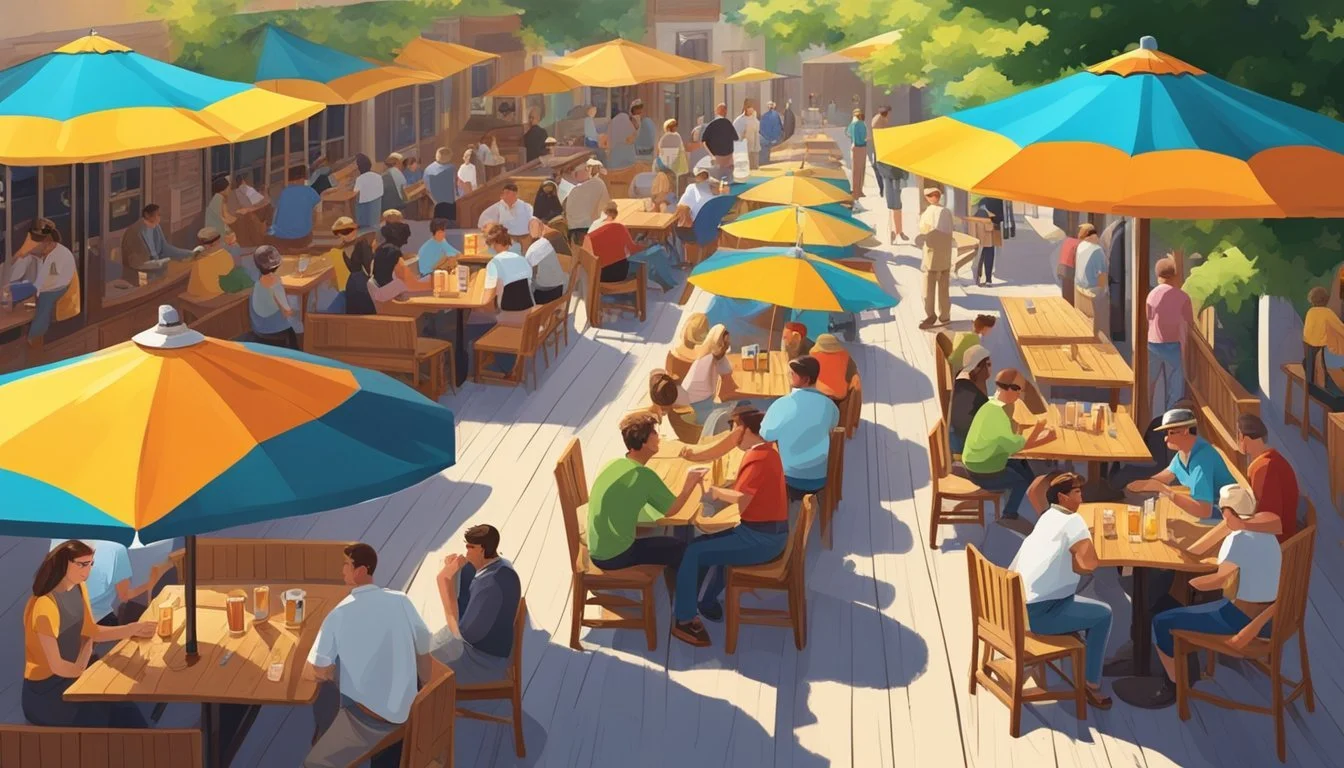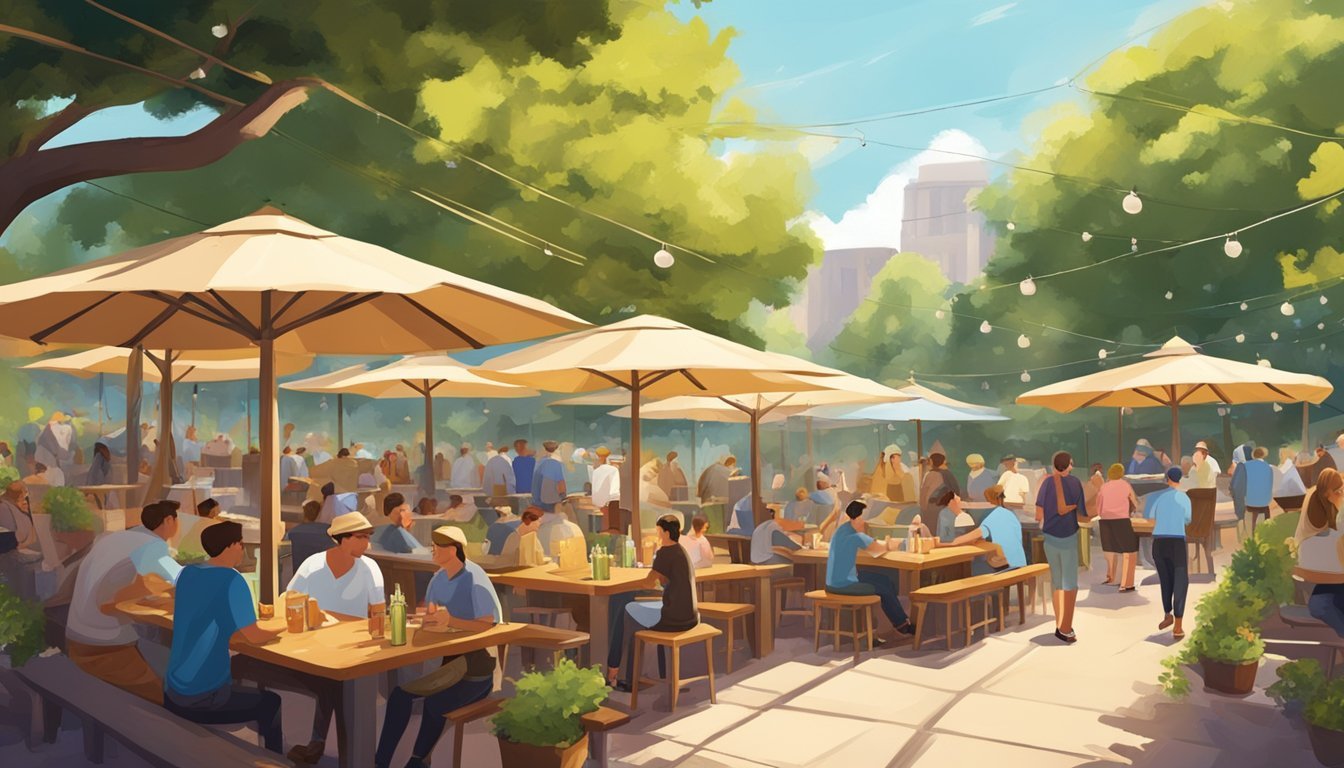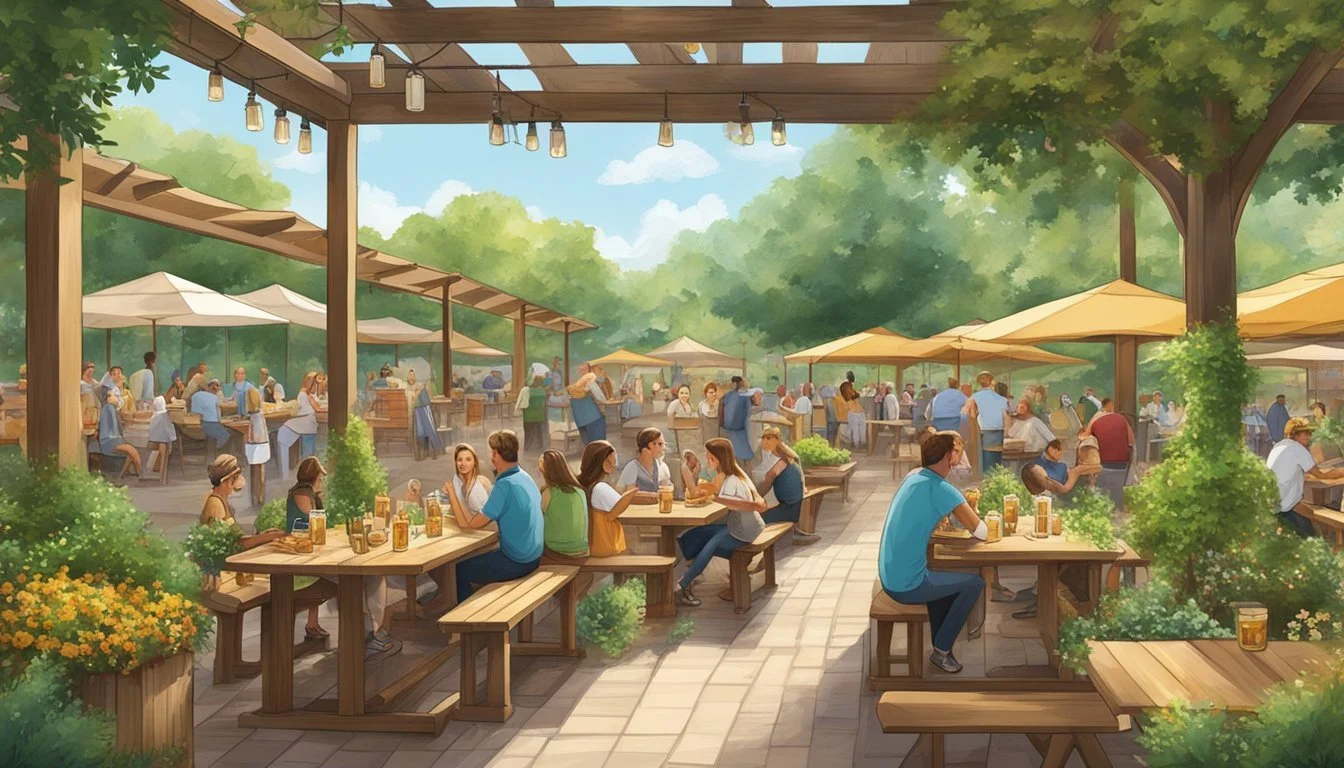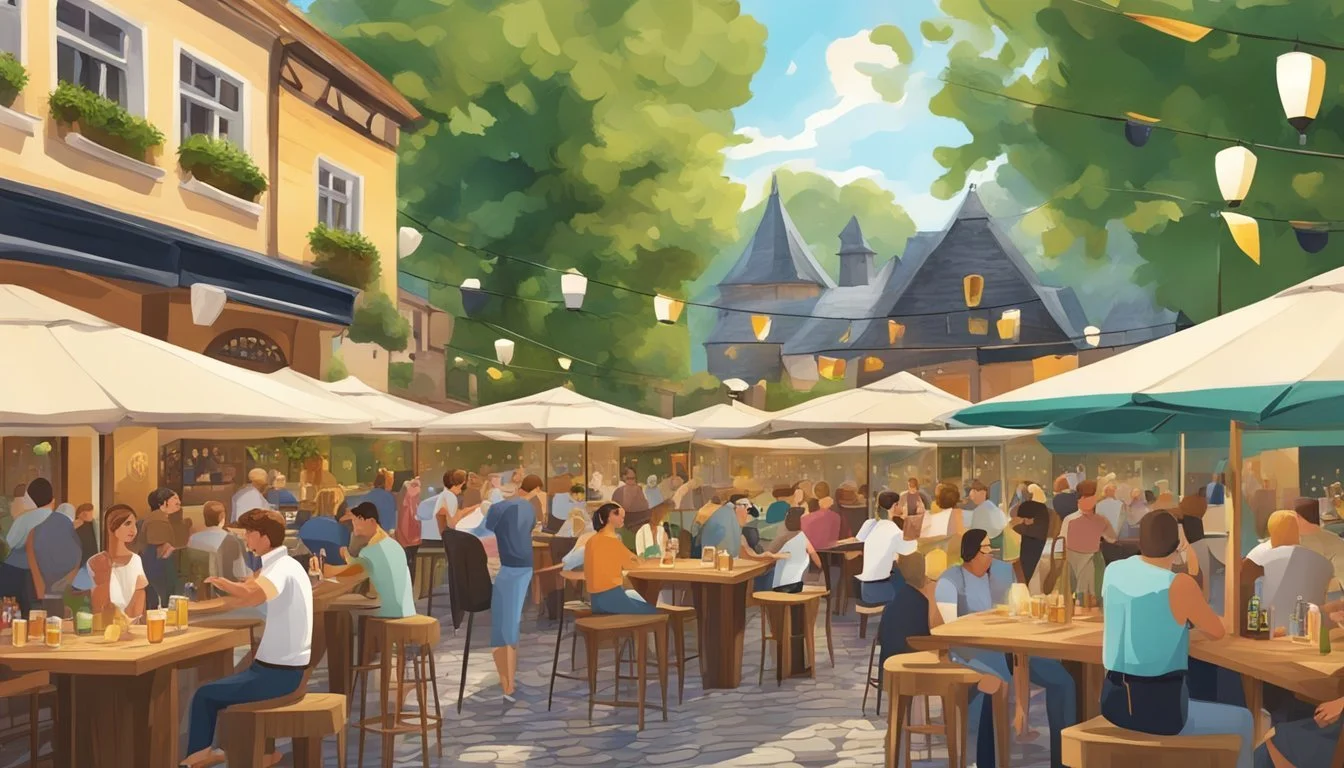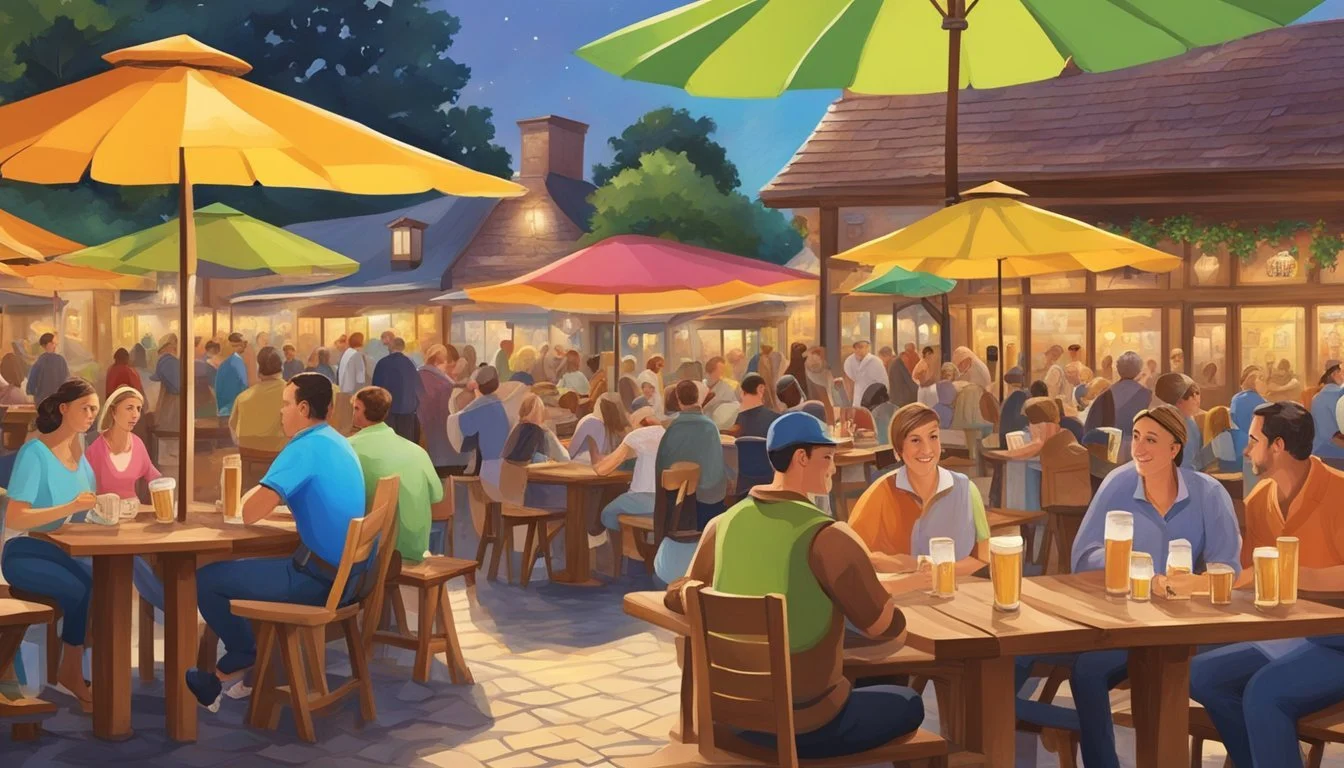German Beer Gardens in Texas
Celebrating a Cherished Cultural Legacy
Nestled in the heart of Texas, German beer gardens stand as a testament to the state's rich cultural tapestry and the enduring legacy of its European settlers. These communal spaces, where cold beer and traditional German fare are as much a staple as the canopy of trees overhead, are emblematic of a tradition that has weathered the ebb and flow of history. Texas itself harbors a deep-rooted German heritage, a fact reflected in the longevity and popularity of these beer gardens which continue to serve as social and cultural hubs, bringing together individuals from all walks of life.
Scholz Garten, established in 1866 in Austin, is not only a cherished local retreat but also holds the honor of being the oldest beer garden in America. Serving as a vibrant gathering place, it reflects the syncretism of Texan and German cultures and has witnessed the state’s evolution while offering a hospitable meeting place for both liberal and conservative patrons, music aficionados, and families alike. The resilience of these establishments, much like the German beer garden tradition itself, is indicative of the state's capacity to embrace diversity while retaining its unique heritage.
As symbols of inclusivity and camaraderie, Texas's German beer gardens continue to thrive, honoring the German and Czech influences that have shaped not only the state's brewing landscape but also its collective palate. They remain integral to the fabric of Texan culture, standing as monuments to the enduring influence of German tradition in a state as varied and dynamic as the patrons they serve.
The Roots of Beer Gardening in Texas
In the heart of Texas, the tradition of beer gardening traces its origins to the 19th century with the arrival of German immigrants seeking new opportunities.
German Immigration and Settlement
German Immigrants began arriving in Texas during the mid-1800s, establishing towns such as Fredericksburg and New Braunfels within the Texas Hill Country. These settlers sought to recreate the communal aspects of their homeland, including their famed beer gardens.
Settlements: Key areas of German settlement included central Texas locales known for their pastoral lands.
Work and Family: Establishing farms and businesses, they balanced work with social community-building activities.
Significance of Community and Culture
Community was and continues to be at the core of the beer garden experience. These venues served as a gathering place for German settlers to maintain their cultural practices amidst their new surroundings.
Gathering Place: Beer gardens provided a space for families, friends, and even political adversaries to come together over a pint of beer.
Cultural Preservation: Through the celebration of German cuisine (What Wine Pairs Perfectly With German Cuisine), music, and leisure, they preserved a sense of identity.
These subsections reflect how German settlers planted the seeds of their rich beer garden culture in Texas soil, fostering a tradition that continues to thrive.
Historical Landmarks and Preservation
Texas is rich in historical landmarks, many of which trace back to its German heritage. Preservation efforts have ensured that the architecture and sites relevant to this history remain integral parts of the community.
National Register of Historic Places
The National Register of Historic Places is integral in the preservation of historic German architecture in Texas. Sites such as the Gruene Historic District harness the essence of German Texan culture with well-preserved buildings that offer a window into the past:
Gruene Historic District: Listed in the National Register in 1975, this district showcases buildings with roots in the 19th century, including a famous dance hall and numerous pubs, that remain cultural hubs to this day.
Important Historical Figures
Key individuals have played pivotal roles in the establishment and preservation of Texas’s German heritage:
John O. Meusebach: His establishment of German colonies has led to important settlements which continue to preserve the traditions and architecture of their founders.
Prince Carl of Solms-Braunfels: His efforts in the development of New Braunfels, a city steeped in German culture, have left a lasting impact, contributing significantly to the area's inclusion in heritage tourism and preservation lists.
Cultural Celebrations and German Traditions
Texas hosts a vibrant array of cultural festivities and German-inherited culinary traditions, firmly entwining the state's identity with its German roots through music, food, and communal joy.
Oktoberfest and Festivals
Texas proudly honors its German heritage through various festivals, with Oktoberfest being a flagship event. Towns like Fredericksburg and New Braunfels play host to Oktoberfest celebrations, featuring traditional German music, authentic attire, and a multitude of events that bring the community together with the chant of "Prost!" signaling the start of a merry feast. Besides Oktoberfest, events like Wurstfest and Maifest showcase German culture with gusto, offering a rich educational and celebratory experience of Germany's historic festivities.
Festival Location Highlight Oktoberfest Fredericksburg German music and dance Wurstfest New Braunfels Sausage-centric feasting Maifest Various locations Spring celebration
Culinary Traditions and Beer
The German footprint in Texas is perhaps most deliciously noted in its culinary offerings. Schnitzels, a variety of sausages, and other authentic dishes are a testament to the enduring influence of German cuisine. Beer gardens and breweries dot the Texan landscape, where craft beer is revered, and traditions are kept alive. Many of these establishments not only offer a range of beers but also recreate the communal atmosphere characteristic of a German beer garden. The presence of German-style breweries emphasizes a continued appreciation for rich, full-bodied craft beer, echoing the beloved German tradition.
Contemporary German Beer Gardens in Texas
German beer gardens in Texas serve as vibrant community hubs that pair local brewing traditions with rich German influences. They offer a unique taste experience, blending Texan and German beer cultures.
Community Hubs and Entertainment
In cities like Austin and areas such as the Hill Country, beer gardens are more than just places to enjoy a beverage; they are bustling centers for community gatherings. Scholz Garten in Austin, established in 1866, is a testament to the enduring popularity of these venues. It's not uncommon to find live music performances ranging from contemporary genres to traditional polka and dance, with patrons enjoying a sense of camaraderie.
The Heights, a neighborhood in Houston, anticipates the opening of a new beer garden by a father-and-son team. This addition aims to become another gathering place where massive amounts of beer, including local favorites like Shiner Bock, and specialty sausages will be the draw.
Local Brews and German Influences
The beers offered in these gardens often include a mix of German imports and Texan craft brews known for their quality and flavor. German styles like lagers and pilsners are brewed locally, with breweries like Altstadt Brewery in Fredericksburg honoring traditional methods. Here's a snapshot of what's pouring:
German Beers: Lagers, Pilsners, Weissbiers
Texan Craft Beers: IPAs, Ales, Stouts
Popular Brews: Shiner Bock, Altstadt Kolsch, Various Seasonal Releases
Food menus at these biergartens typically feature German favorites. Traditional delicacies such as bratwurst and pretzels are staples, providing an authentic taste of German cuisine. This fusion of food and drink highlights a commitment to maintaining the spirit of the original biergartens while embracing the local Texan palate.
Modern Impact and Growth
The integration of German beer gardens in Texas continues to foster economic prosperity and enrich the cultural tapestry of the state, facilitating an expansion in the craft beer industry.
Economic and Social Development in Texas
German beer gardens have become an integral part of Texas' economic and social landscape, driving development and fostering community bonds. Establishments like Scholz Garten in Austin, operating since 1866, not only contribute to local economies through job creation but also serve as social hubs where diverse groups come together. The steady growth of such venues has encouraged urban development around these cultural centers, leveraging land for community use and contributing to the vibrancy of Texan cities.
Economic Impact:
Job creation: Local employment opportunities in service and management
Community engagement: Spaces that host social events and foster community identity
Social Contributions:
Encouraging a rich mix of cultures, where descendants of German settlers and modern Texans meet
Hosting events that underscore the cultural significance of German heritage in Texas
Expansion of Craft Beer Culture
The influence of German brewing traditions has directly inspired the expansion of the craft beer culture in Texas, with a growing number of breweries that pay homage to these roots. Craft beer has seen a surge, with Texans embracing the quality and variety that local breweries offer. This movement has contributed to a state-wide growth in appreciation for artisanal beer and has popularized the communal beer garden setting.
Craft Beer Culture:
A proliferation of craft breweries across Texas, with emphasis on quality and tradition
Greater variety of beers, inspired by German styles, catering to diverse preferences
The resurgence of beer gardens and craft beer has become a testament to Texas' adaptive culture and its capacity to blend history with modern tastes. This trend underscores the enduring social and economic impact of a tradition that continues to thrive and evolve within the Texan landscape.
The Role of Institutions and Education
German beer gardens in Texas not only provide a venue for social gatherings but also serve as centers for cultural exchange and academic collaborations, specifically with institutions like the University of Texas.
University Influence and Partnerships
The University of Texas plays a crucial role in preserving and fostering German culture through partnerships with beer gardens like Scholz Garten. Such collaborations often involve hosting joint events that celebrate German heritage. Moreover, University of Texas entities, including the Germanic Studies department, encourage this collaboration by integrating cultural experiences with academic learning.
Language Learning: The German language is promoted through conversational meet-ups in beer gardens, turning leisurely environments into immersive linguistic experiences.
Musical Connect: The accordion, deeply embedded in German and Texas music traditions, is often featured in University-sponsored cultural events.
Cultural and Educational Events
Scholz Garten and similar establishments are more than just dining spots; they are institutions that contribute to the educational landscape by hosting events that teach patrons about German culture and the arts.
Cultural Celebrations: Events like Oktoberfest highlight traditional German culture, complete with music, food, and language.
Artistic Showcases: Live performances of bands, including those with German heritage, make beer gardens a hub for cultural and arts education.
Sports Gatherings: The University of Texas football team fans often gather at beer gardens, tying sports culture with community engagement and university spirit.
In conclusion, the interplay between educational institutions and beer gardens in Texas enriches the understanding and appreciation of German culture, languages, and the arts.
Challenges and Preservation of Traditions
In Texas, German beer gardens are historical icons where the preservation of tradition encounters the necessity of modern adaptation. The legacy of German heritage faces challenges but also finds renewed expression as it keeps step with the changing times.
Adaptation to Modern Times
Changes in societal norms and regulations have historically impacted German beer gardens in Texas. For instance, Prohibition in the early 20th century forced many establishments to close or reinvent their offerings. Today's beer gardens have to balance maintaining an authentic German experience while complying with modern regulations and competing with a broad array of entertainment options. Operators update their services, often incorporating technology for efficiency, while ensuring the essence of the German communal beer-drinking tradition perseveres.
Maintaining Cultural Heritage
The maintenance of German cultural heritage in Texas is a concerted effort, particularly within regions known as the "German belt," where a significant number of German immigrants settled. Festivals like Wurstfest in New Braunfels honor German culinary traditions, attracting visitors with authentic German sausages and beer. Unfortunately, the line of direct descendants who can impart German traditions is thinning, and the authenticity sometimes comes into question as cultural dilution occurs. Communities are thus tasked with retaining the rich heritage by safeguarding the language, customs, and festivities introduced by their German immigrant ancestors, not just within beer gardens but across cultural expressions. This is key to sustaining the unique Texan-German culture through generations.
Conclusion
German beer gardens have long been a cornerstone in the Texan community, reflecting a rich history of German influence in the region. They are more than just places to enjoy a cold brew; they represent a merging of cultures and traditions that have withstood the test of time. In Texas, German beer gardens like Scholz Garten stand as testaments to this enduring heritage.
Traditions are kept alive through these convivial establishments, where one can experience the communal spirit of a classic German beer garden. These spaces serve as cultural hubs, welcoming individuals from all walks of life to partake in an experience rooted in German customs but uniquely adapted to the Texan way of life.
In essence, the survival of German beer gardens in Texas showcases the resilience and contribution of German heritage to the local culture. They have evolved to become integral to the social fabric of Texas, offering a blend of history, music, and gastronomy. This blend ensures that the tradition of gathering, celebrating, and enjoying a piece of German culture continues to thrive in the heart of Texas. As they move forward, these establishments maintain their relevance in the contemporary cultural landscape, adapting to changing times while honoring their storied past.
References
Scholz Garten History: Established in 1866, Scholz Garten is a hub of social life in Austin and a testament to Texas' German heritage. Renowned for being the oldest operating tavern in Texas, it offers traditional German fare and hosts a range of cultural events.
Location: 1607 San Jacinto Boulevard, Austin, TX
Web: Scholz Garten
German & Czech Influence in Texas: They have contributed significantly to the state's cultural tapestry, notably in the brewing industry. For details on cultural influences:
Contact Information:
Address: 401 Bryan Ave Suite 117, Fort Worth, TX 76104
Phone: (817) 708-2739
Email: info@example.com (Email address obfuscated for privacy)
America’s Running Beer Gardens: As historical landmarks, these beer gardens are cultural cornerstones that celebrate communal drinking traditions combined with lively music and events.
Local Historical Significance: Scholz's reputation as a community gathering space bridges political and social divides, welcoming all with a love for heritage and community engagement.
Educational Resources:
Readers curious about the historical context and evolution of German beer gardens in Texas can inquire at local historical societies and university archives.
The authenticity of information can be enhanced by consulting primary sources like historical records and interviews with local historians.
Each reference underscores the enduring traditions of German beer gardens in Texas, reflecting both erudition and discernment in preserving and sharing the state's rich heritage.

